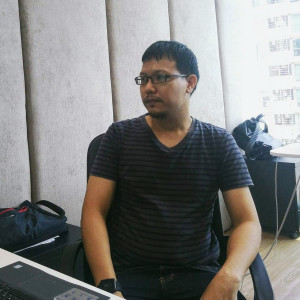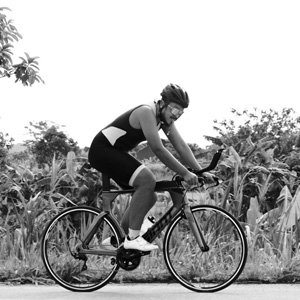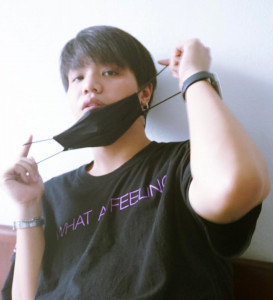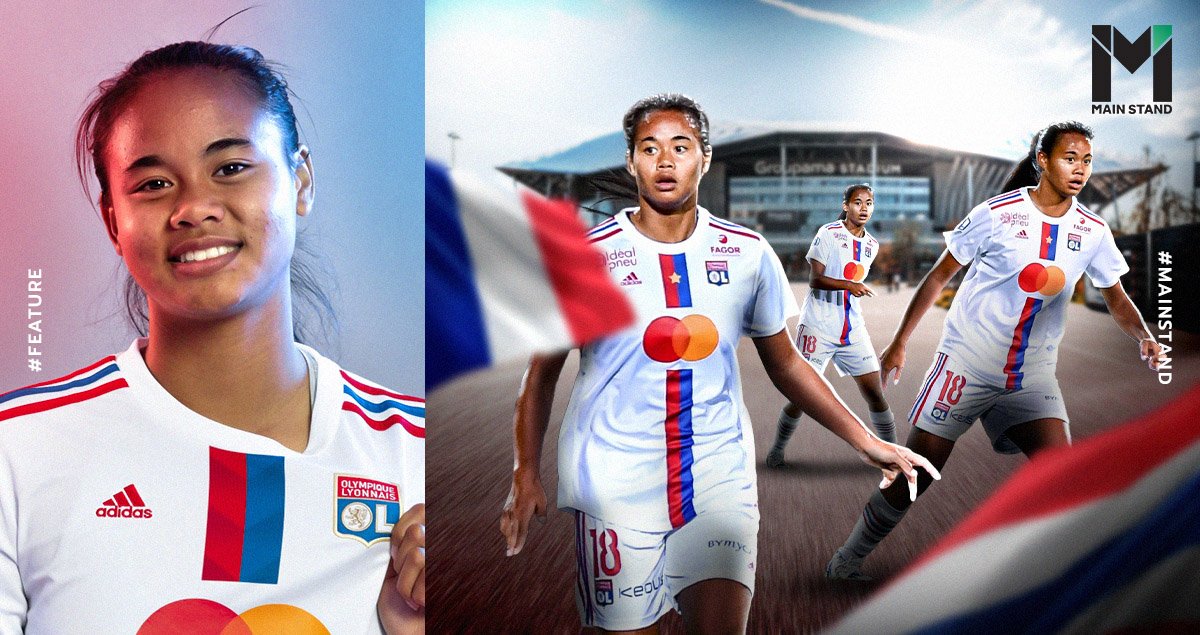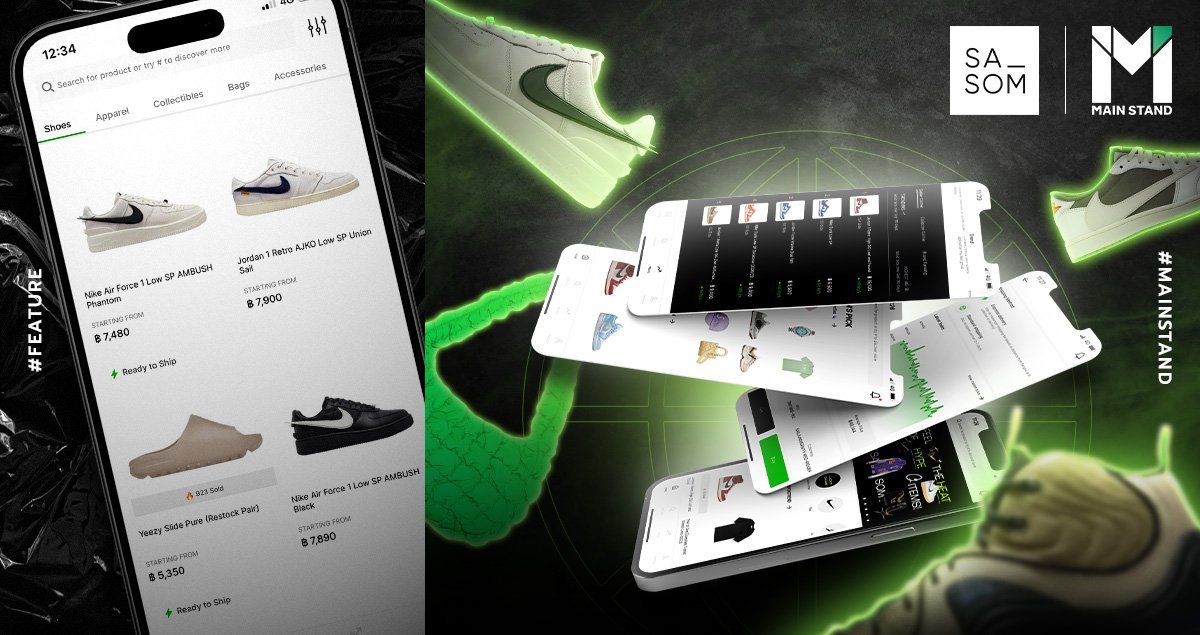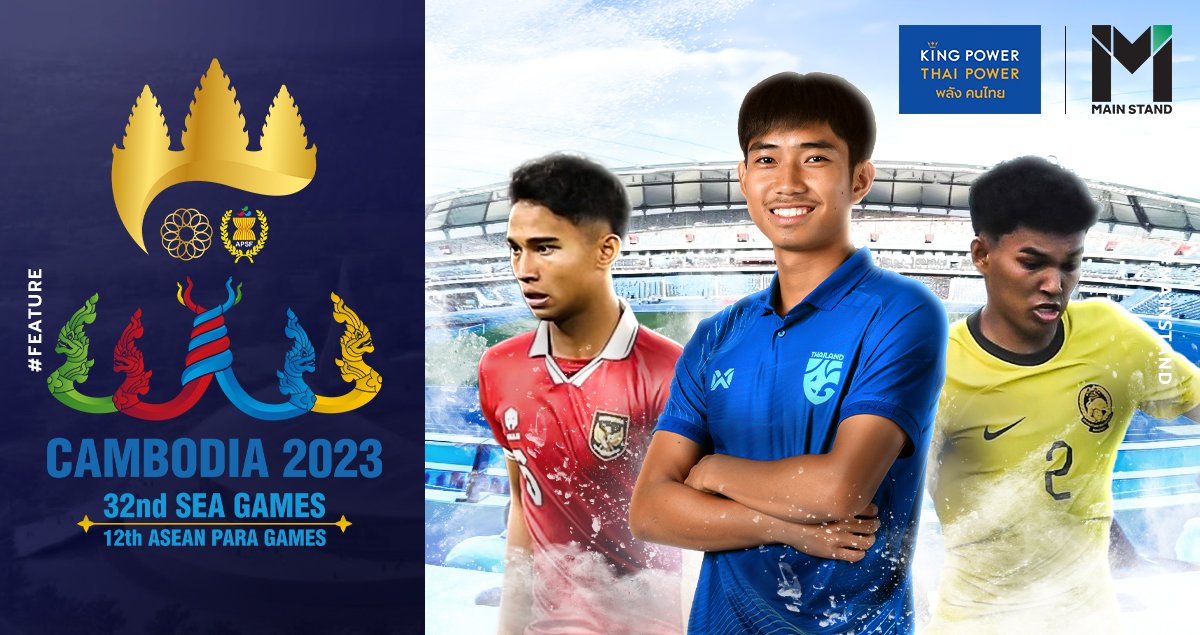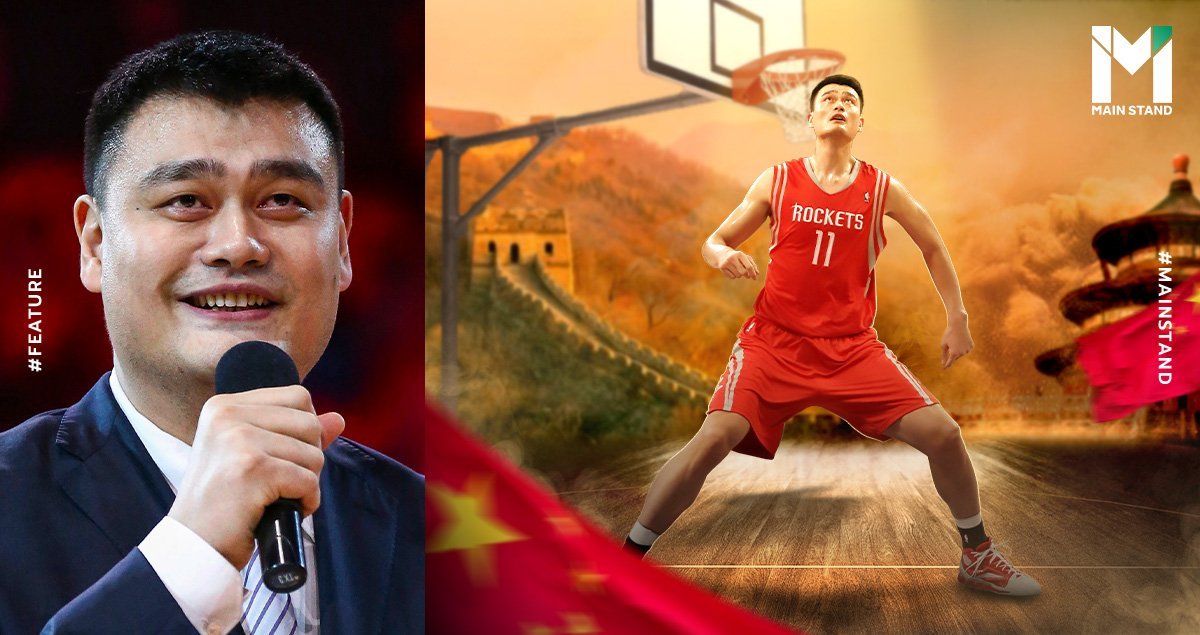
"Yao, on the one hand, is this great symbol of China's modern advancement, a commercial icon that can stride across the Pacific and play the role of a bridge between East and West," Brook Larmer, the author of Operation Yao Ming, explained.
"But he's still the product of this system, one of the last bastions of socialism in China."
Larmer quoted the above, speaking of an Asian basketball player, Yao Ming, a former Houston Rockets center, who was an eight-season NBA All-Star and came second in the Rookie of the Year in 2002-03.
However, the Chinese government mapped out Yao Ming's arrival and success in the NBA for decades, whether dealing with his skills or a height of 228 centimeters (cm).
Follow Main Stand and dunk into Yao Ming's journey to the NBA.
Arranged breeding by China
China is a world's sporting superpower, home to Olympic gold medals and leading sports persons, thanks to the establishment of the Sports Commission in 1952.
The organization aimed to handpick potential skilled players to be trained by disciplinarian coaches in the government's unique program. In this program, living costs, education, and work after retirement from sports are all provided by the Chinese government.
But the trainers were required to undergo strenuous drills throughout the year to yield the best results and become the world's consummate athletes as national pride. The larger-than-life Yao Ming came from this system through a well-planned process.
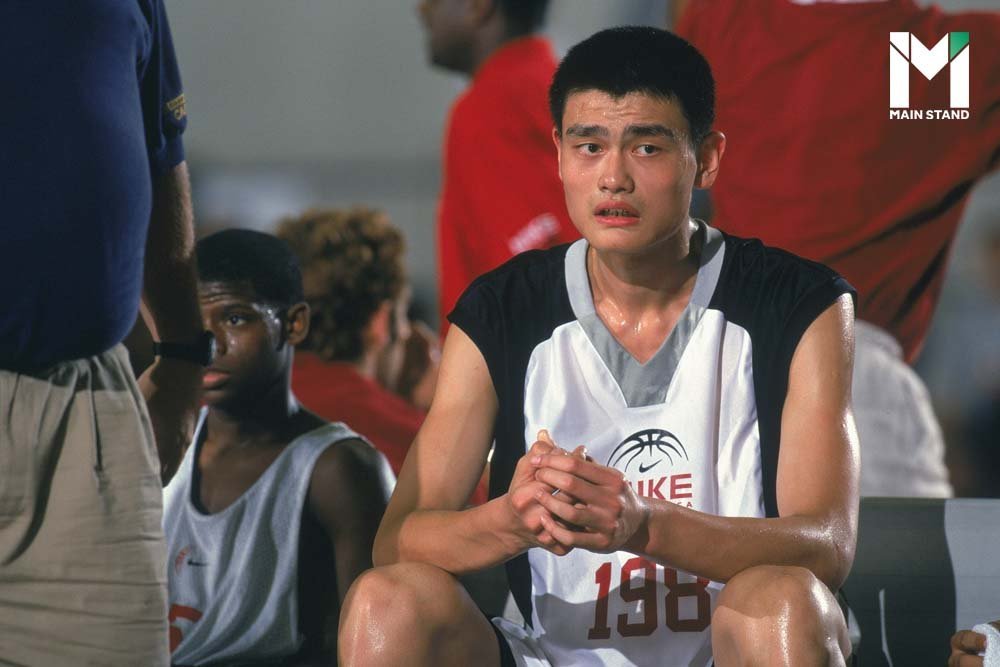
At that time, there was a medical breakthrough in sport. Growth-predicting manuals are used to measure bones and pubic hair to predict potential athletes' future sports.
This technology was utilized to determine athletes' future sports based on physiques. In detail, weightlifting requires dumpy but muscular torsos; divers need tiny hips to minimize splash; basketball players must have untouchable height.
The Chinese government had long tracked Yao's family as Yao Ming's grandfather was once the tallest man in Shanghai. But unfortunately, the state failed to locate him and found 205cm tall Yao Zhiyuan, his son, instead.
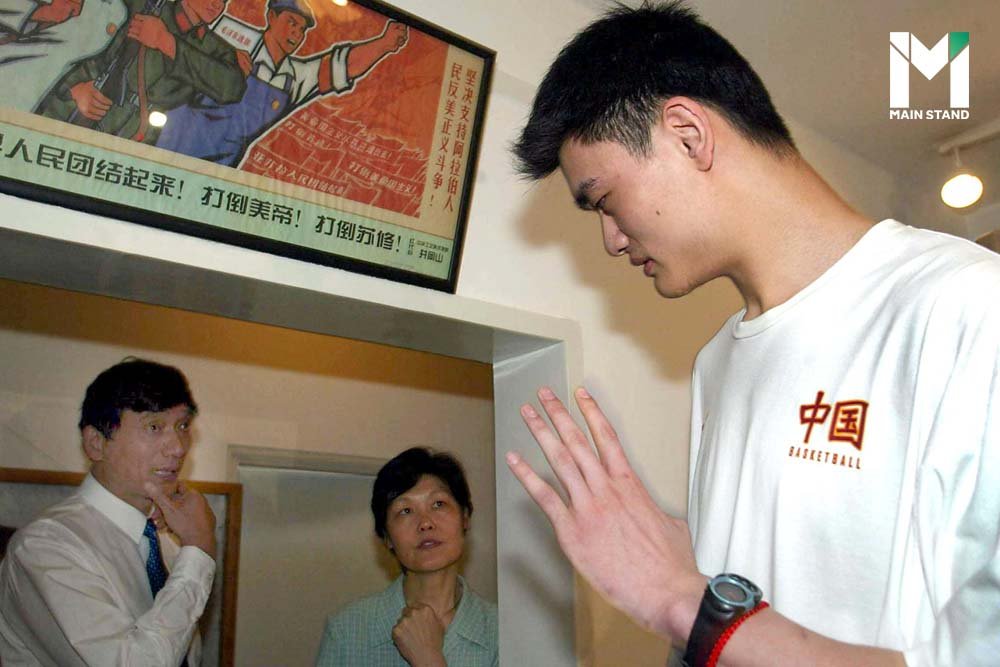
Zhiyuan was taken to the state's grueling basketball training grounds and paired with 182cm Fang Fengdi, a former Red Guards, to give birth to a two-meter tall human being.
"It wasn't a national breeding program. It was a desire among Shanghai officials for them to get together," Brook Larmer told AFP.
Growing up as a giant kid
"(But) when Yao was born, everybody in the sports community in Shanghai and nationally knew he was something special," Larmer continued.
Yao Ming was born in 1980 as a 58cm infant, almost twice as tall as average Chinese newborns.
When he was eight, his height reached 171 cm, above Chinese men's average.
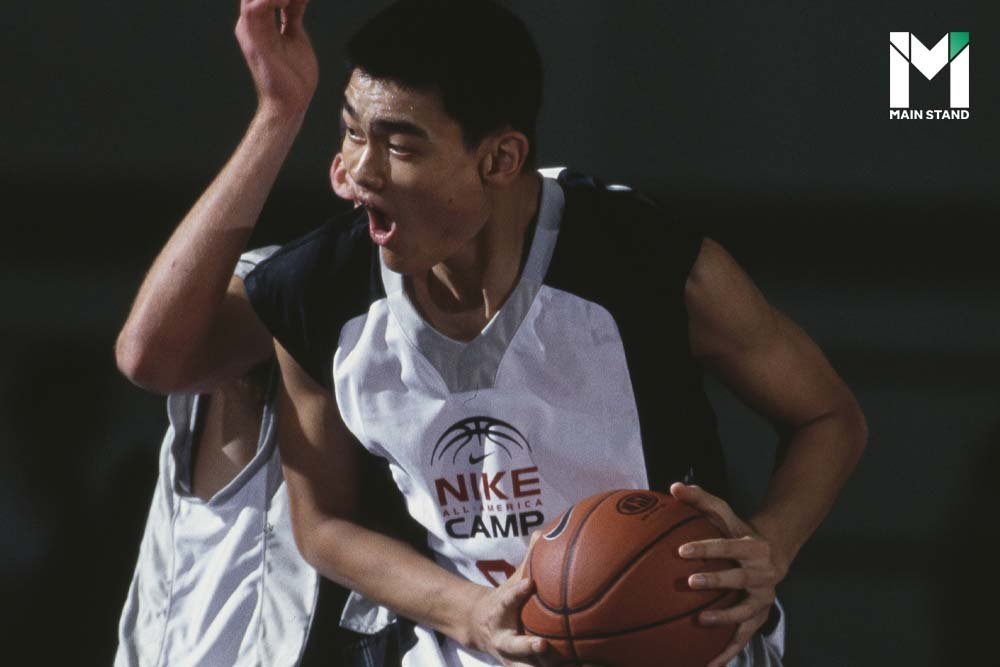
As a result of his extraordinary height, they made Yao play basketball, which he had no interest in, but he was out of choice. And his parents' dissent could not supersede the authorities' mandate.
"Even when his parents resisted at first to put him in the same system that had caused them some suffering and bitterness, there was not much choice," Larmer said.
"He hated the game for a decade. He didn't like it. He wasn't any good at it."
Yao moved to train in the system when he was eight. They sent him to a sporting school in Xuhui. It was not where his parents trained, but the two institutes both adhered to three dictums; eating, sleeping, and six hours of intense training.
On top of that, he was not allowed to date anyone too. They have set a rule which states for participants to be allowed to marry will be at the age of 30 (male) and 28 (female). This is to ensure they have total concentration on the drills.
Therefore, Yao's life was associated solely with vigorous and repetitive basketball practices. Also, the participants were fed with a steady stream of mysterious concoctions to boost their height, resulting in Yao's 187 cm height at age 12.
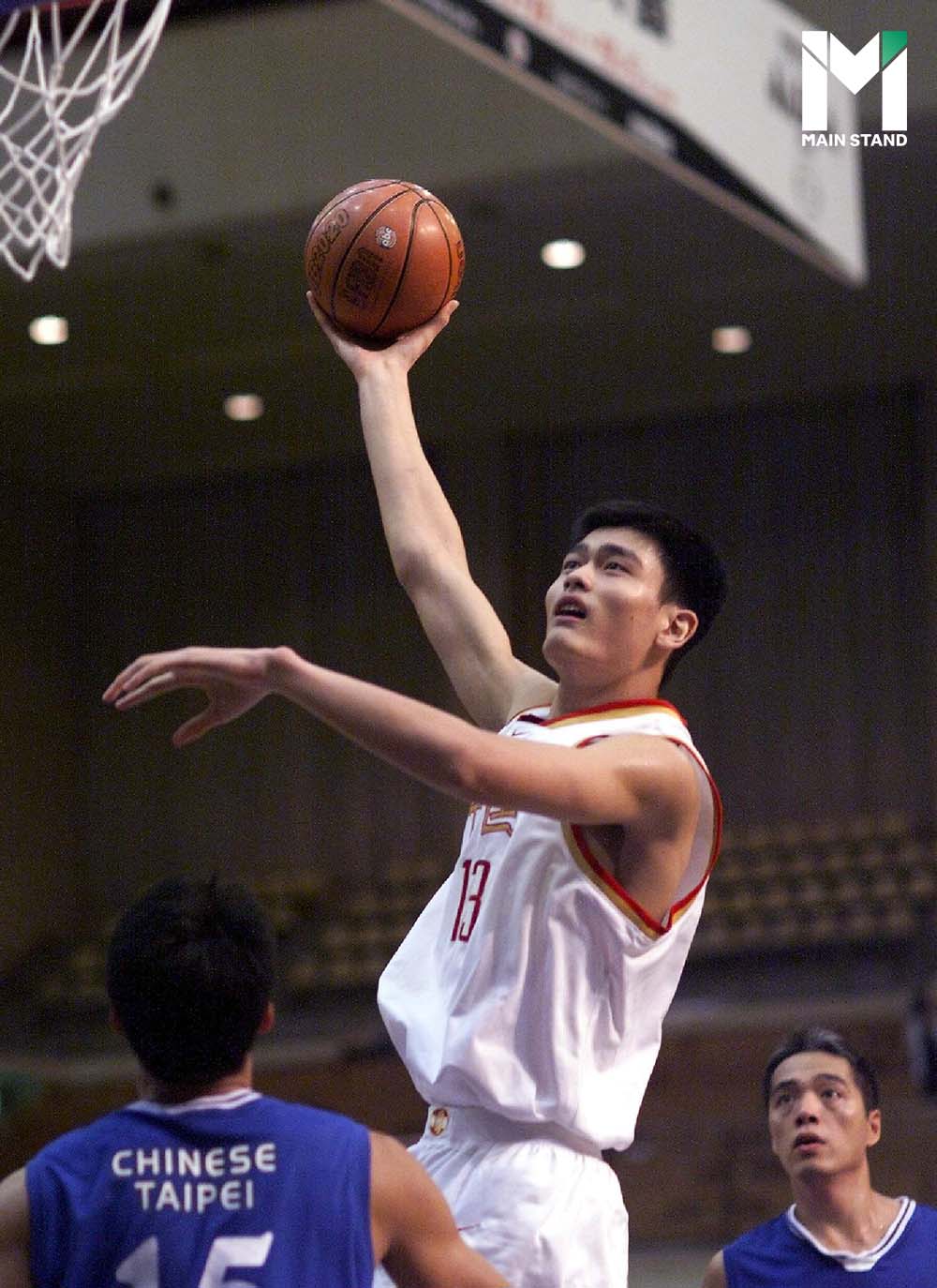
"In Yao's case, I don't have any proof … (but) in that period in the 1990s, they were using all kinds of experimental stuff to enhance players' stamina and strength," Larmer said.
"One would think that as China can flex its economic, military and diplomatic muscle, it wouldn't need sports as a crutch."
All this resulted in Yao Ming's professionalism.
A star two nations crave for
Yao's sporting school life ended when he was 13 as he needed to leave school to join the Shanghai Sharks, a professional basketball team in CBA (Chinese Basketball Association).
In the beginning, Yao played for a junior team. In the following four years, he was able to play for a senior team, scoring 10 points and grabbing 10 rebounds per game, cruising him to win the 1997-98 CBA Rookie of the Year.
Despite the drought of his appearances in the following season resulting from his broken bones in the ankles, he made an exceptional return during 1999-2001, leading the Sharks to the CBA finals in the 1999-2000 season.
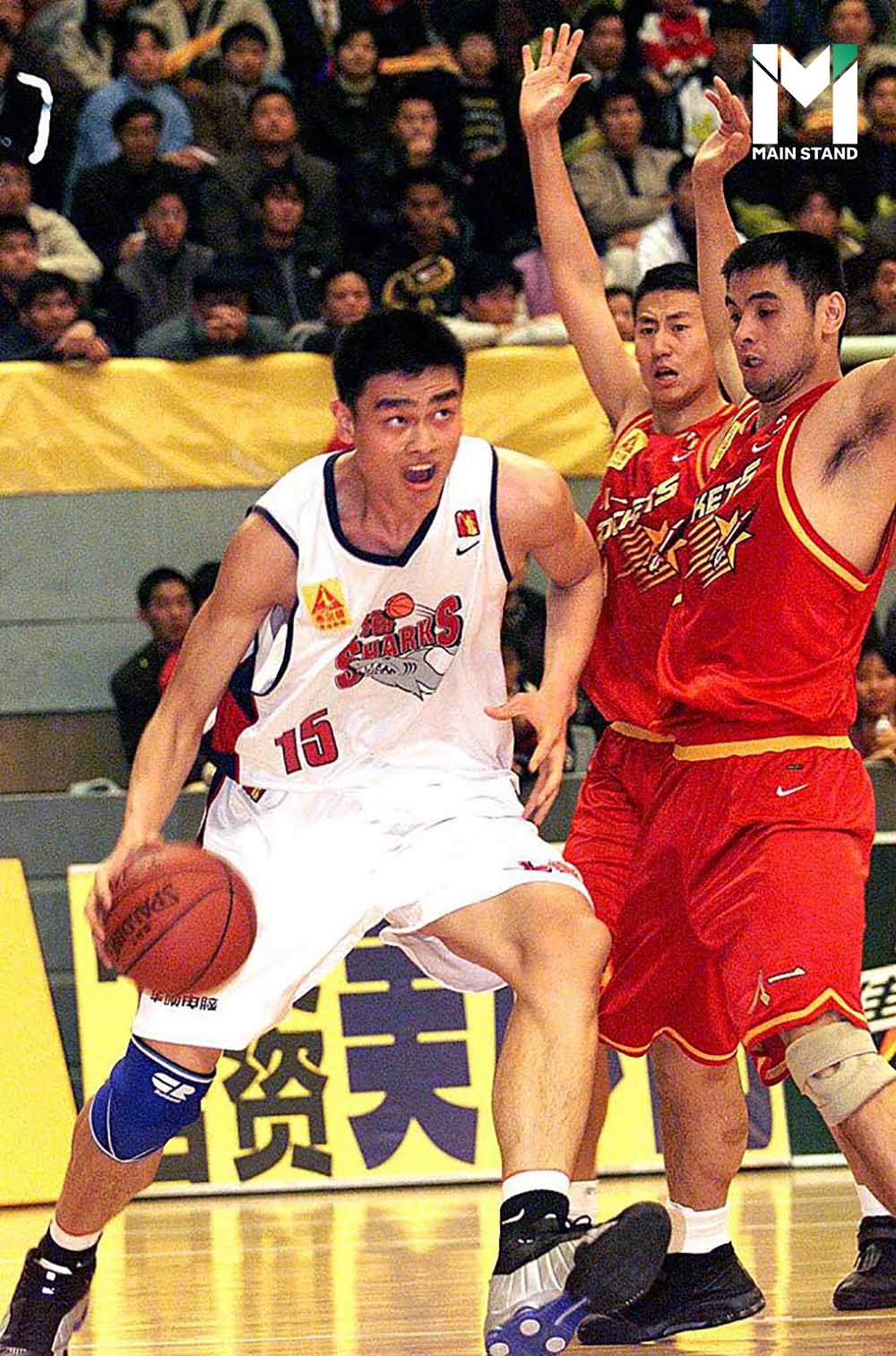
Unfortunately, the team was defeated by the Bayi Rockets twice.
It was Yao's turning point, though, as an idea to succeed in his career in the NBA scene crossed his mind.
Shanghai Sharks was willing to release Yao to play for another team. Still, they insisted on releasing Yao at the "appropriate time, with the appropriate team, and under the appropriate conditions."
Previously, Li Yaomin, Shanghai Sharks vice general manager, attempted to put Yao on the 1999 NBA draft after Li asked him to pen a contract with Evergreen Sports Inc., which would be entitled to a third of the income (and Li would earn from the deal).
However, the deal didn't come to fruition.
Later, Bill Duffy, a renowned basketball agent, came through sneakers sponsor Nike.
So Yao's ambition for the NBA was ruined by Li. Li claimed that an NBA team offered the Sharks up to one million US dollars to release Yao, but the team expected higher fees.
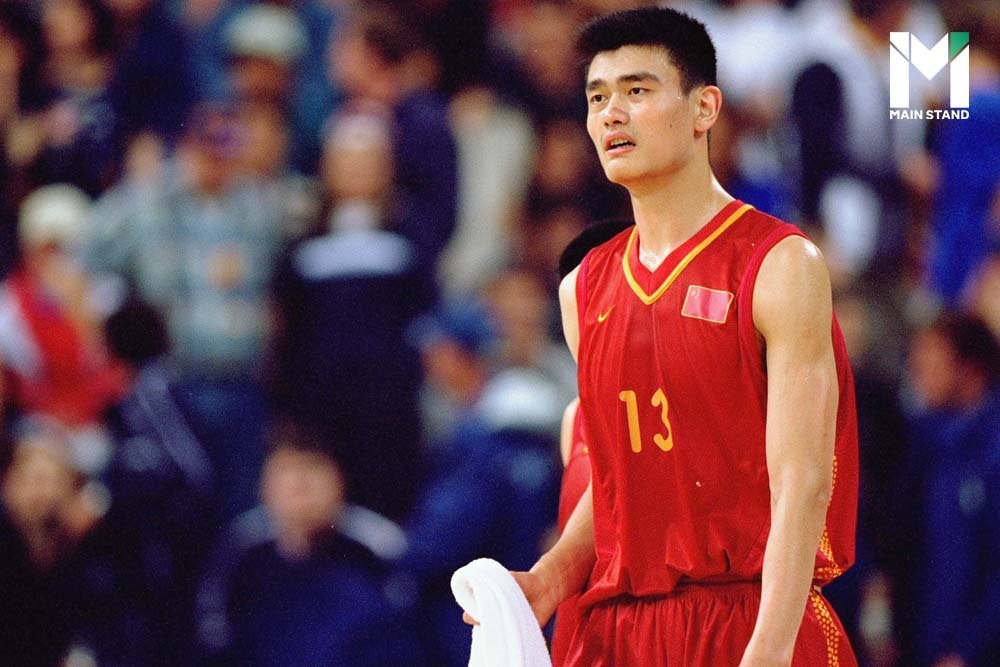
"Yao Ming is China's Michael Jordan," Li explained. "We cultivated him from childhood, made him what he is today. So if we're being asked to give him up, don't you think we should get a high price?"
In addition to the financial respect, Shanghai Sharks also requested authorization to broadcast NBA matches in China. Also, China demanded that the NBA open basketball clinics, run more basketball schools, and grant financial support to construct new basketball courts.
The 2001 NBA draft was due on May 13, 2001. When the deadline was around the corner, the NBA tried to negotiate and claimed that if the Shanghai Sharks remained unsure, they would ignore Yao's draft and allow Yao to play as an undrafted player. This may yield less income, both for Yao and the Shanghai Sharks.
However, the Shanghai Sharks insisted on its words, regardless of a one million dollar offer by Yao's mother, Da Fang, so the team released Yao to play in the NBA. However, in the end, his dream wasn't fulfilled.

Two days before the deadline, the Shanghai Sharks announced that Yao wouldn't enter the 2001 NBA draft, claiming the CBA was not ready to lose a star and he was too immature to play in the NBA. Also, the Sharks stated it would like Yao to secure the first championship for the team.
"Once your heart gets broken, you can grow up once you feel like your dream passed you. During that period, I was very depressed. When I faced the TV camera, I smiled, but that was a cover-up," Yao recalled. And it's time he stood up for himself.
Latent protest
Yao played in the 2001-2002 season with his broken heart and pain fueled by the fact that Bayi’s top players such as Wang Zhizhi and Mengke Bateer successfully signed with NBA teams.
Despite the despair, Yao's professionalism remained. He did his best and slew in every game, averaging 29.5 points, 18.5 rebounds, and five blocks per game, leading the team to the final stage again.
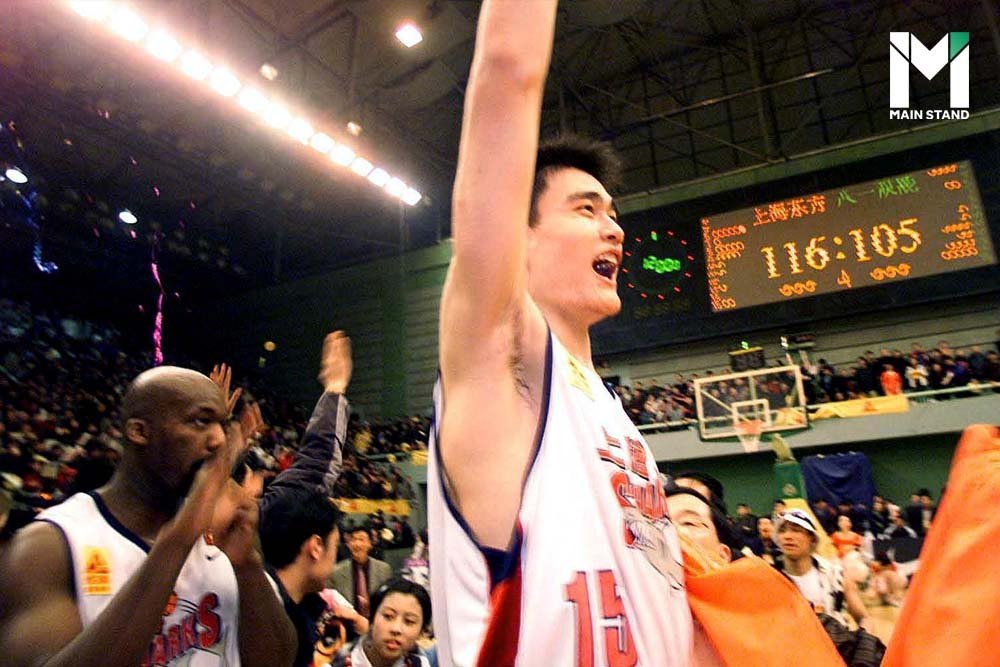
Yao put tremendous effort to result in giant leaps in performance so that he was qualified enough to play in the NBA scene. Finally, in the finals, Yao appeared with a stunning performance, scoring 45 points and 22 rebounds, earning Shanghai Sharks the first victory in history.
His contribution to the team's victory led him to good news. Li then stated that the team would release Yao because he successfully earned the team success.
"Now, I would like to deliver a piece of good news. The club will no longer keep Yao Ming from going to the NBA. This is because Yao has opened the door to the NBA with his hard work," Li said in a statement broadcast live on Shanghai TV.
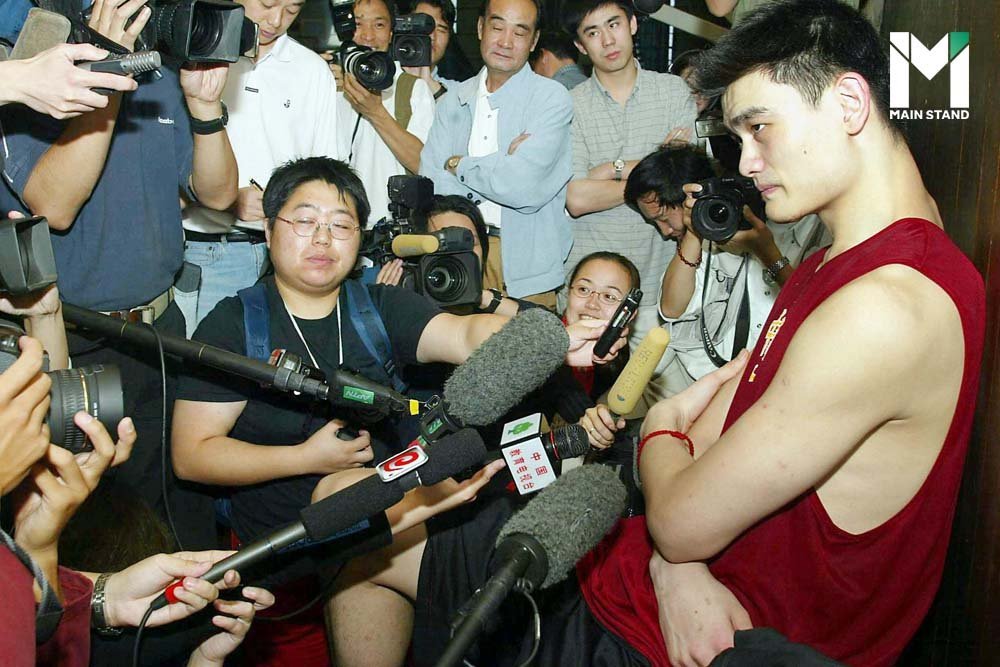
However, Yao's dream was again ruined as the Chinese authorities stipulated that any Chinese players playing in the NBA were liable to turn over 50% of their earnings to the state.
Those related to the deal attempted to negotiate with the state but were unsuccessful. Finally, when the deadline was imminent, Yao's mother threatened that Yao Ming would no longer exist in Chinese basketball if the deal failed.
"If we don't reach an agreement, Yao Ming will never play basketball again. He will go to university, and that will be the end of his career. That's okay because that's what we wanted from the start," Da Fang threatened.
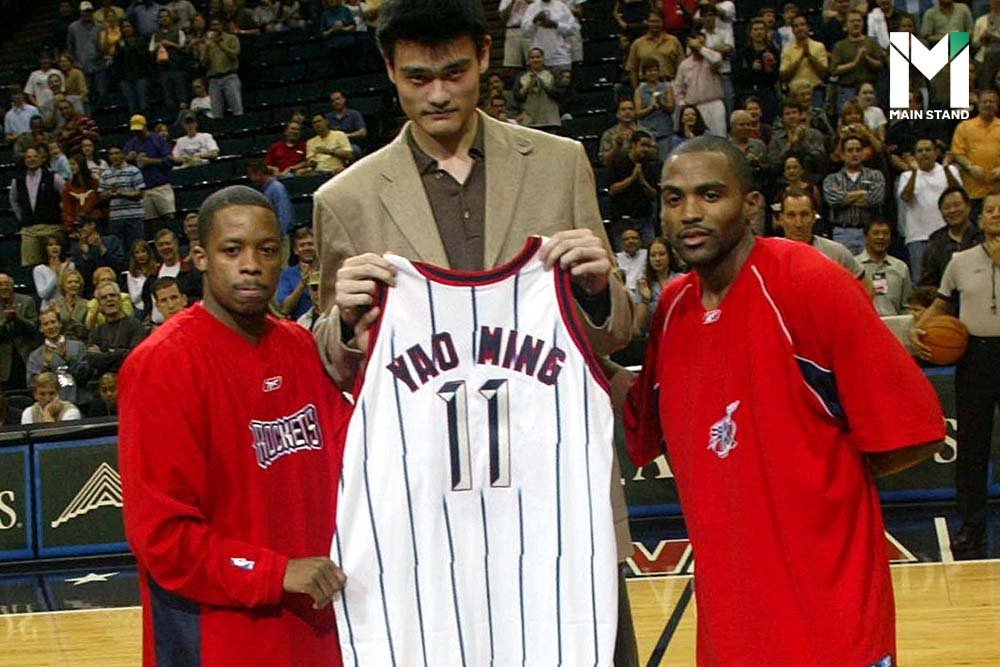
The CBA, the state's side, retaliated by not allowing Yao to travel to the US for the draft, while Yao's negotiators stated they would give a statement and unveil the truth.
Finally, Shanghai Sharks gave in, and Yao managed to join the Houston Rockets as the draft's first overall pick. He also finished second in the Rookie of the Year to Amar'e Stoudemire. Yao was on the All-Star team eight times and retired as a No.11 Houston Rockets player.
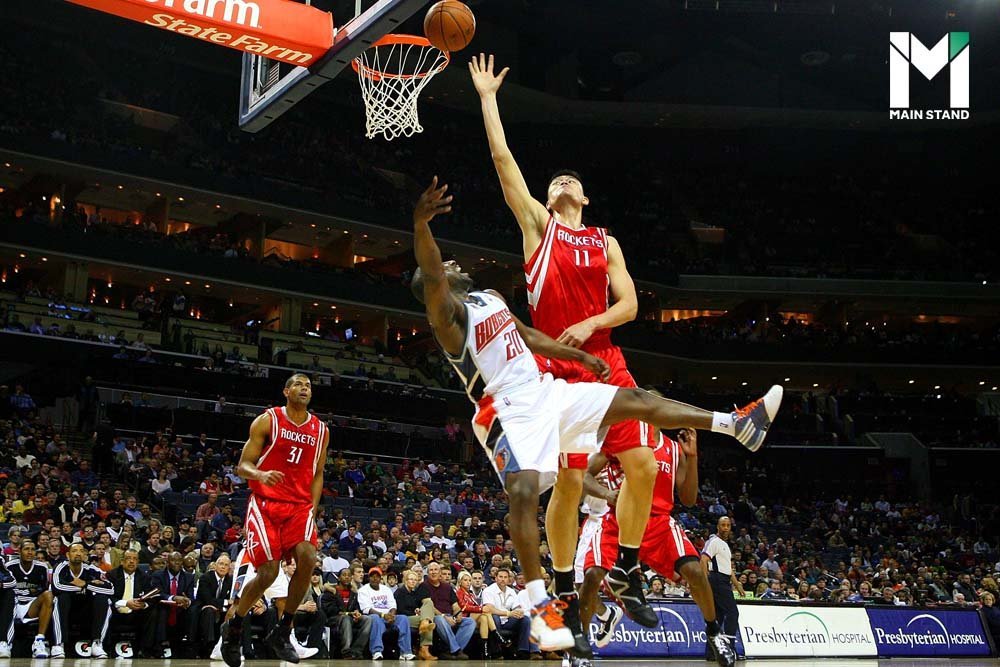
Yao's superior performance throughout his nine-year stint in the NBA led him to be inducted into the Naismith Memorial Basketball Hall of Fame in 2016. He also inspired many basketball players, both Chinese and Asian, to play in the NBA.
But it seemed China and Yao were inevitably connected.
The state's asset
After his retirement in 2011, Yao continued his studies and earned a bachelor's degree. After that, he began as the owner of Shanghai Sharks.
In 2013, he was part of the Chinese People's Political Consultative Conference (CPPCC) and spread socialist ideologies, although he was not under any of China's communist parties.
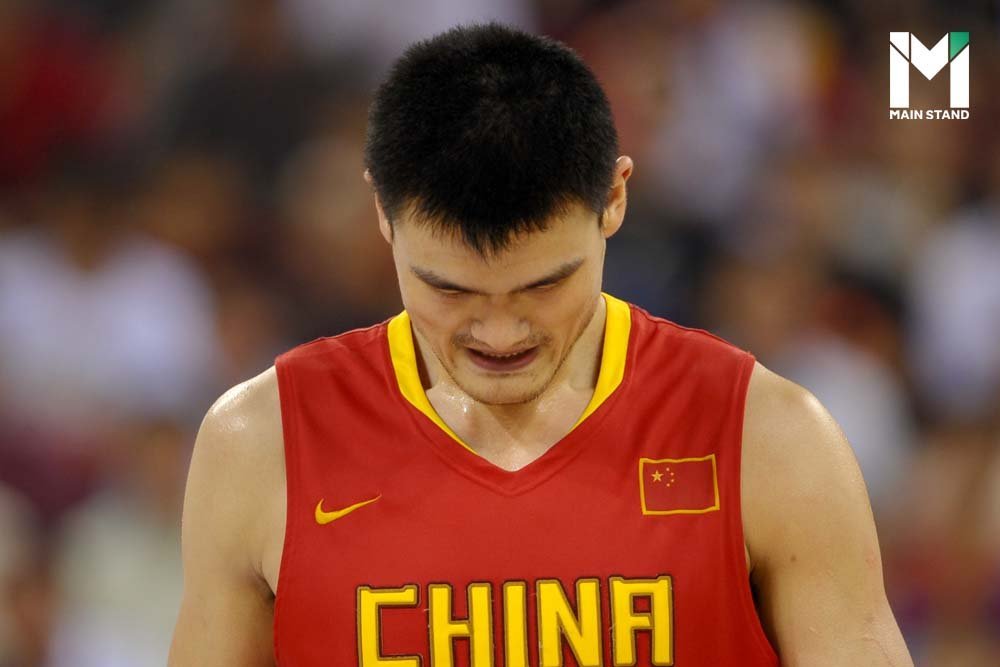
This is an embodiment of China's politics. The state also has an impact on people's lives. In particular, famous people will be used as a tool for propaganda as they can bring glory to the motherland, and Yao is, of course, an example.
But in the case of Yao Ming, it is unavoidable as his current position, the president of the Chinese Basketball Association, directly concerns the state.
And he will probably serve the state throughout his lifetime, regardless of any opposition.
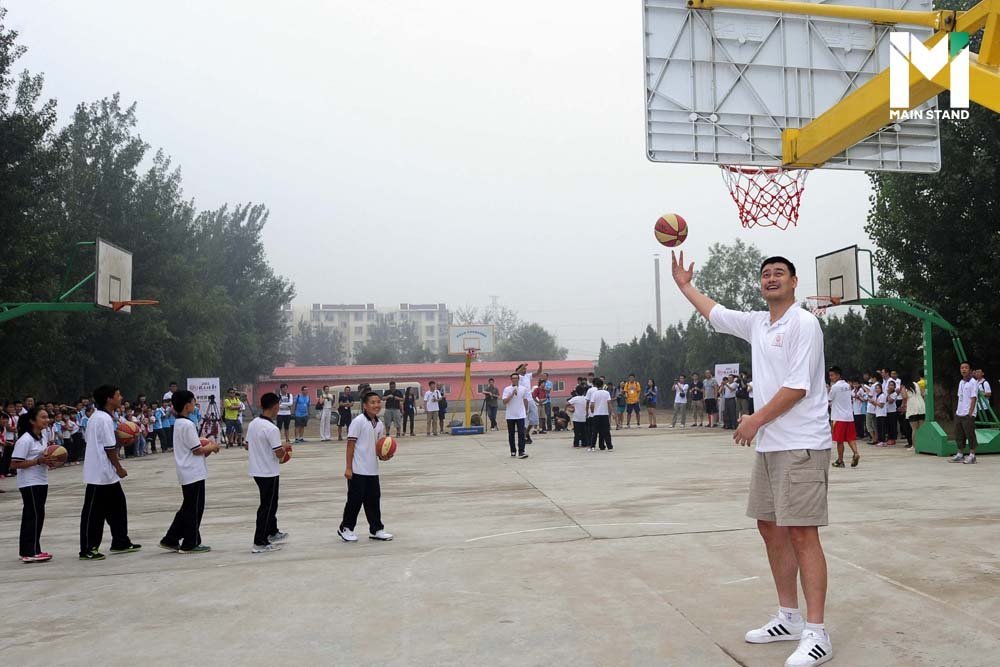
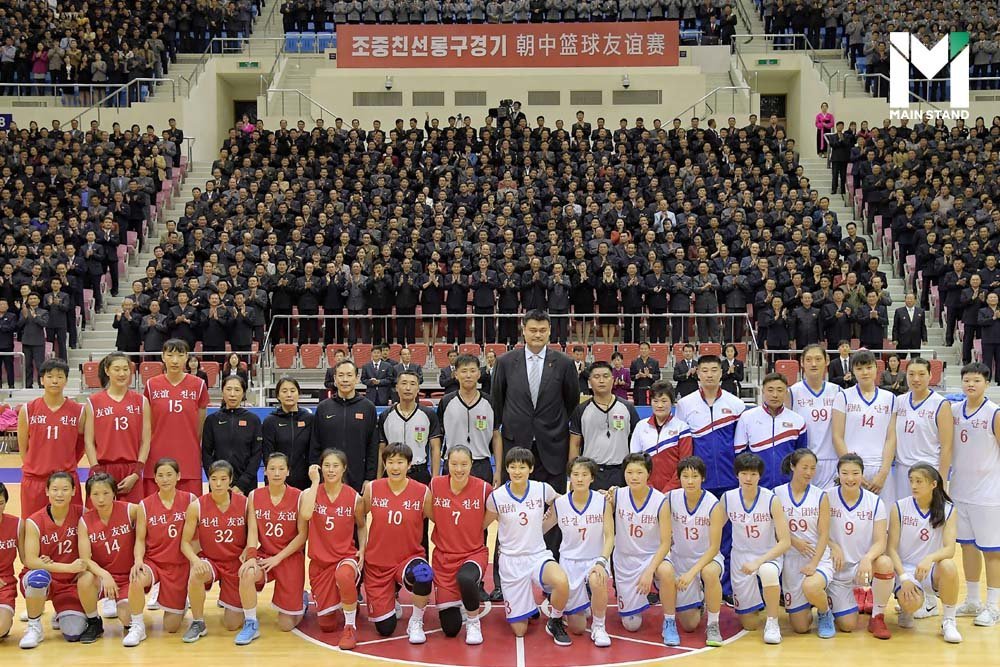
Therefore, let us re quote the above:
"Yao, on the one hand, is this great symbol of China's modern advancement, a commercial icon that can stride across the Pacific and play the role of a bridge between East and West," Brook Larmer, the author of Operation Yao Ming, explained.
"But he's still the product of this system, one of the last bastions of socialism in China."
Sources:
https://www.smh.com.au/sport/basketball/yao-ming-the-basketball-giant-made-in-china-by-order-of-the-state-20060119-gdmsz0.html
https://www.sidbreakball.com/how-yao-ming-scaled-the-great-wall-of-chinese-bureaucracy-to-get-to-the-nba/
https://www.dailymail.co.uk/news/article-3282092/JANE-FRYER-William-s-7ft-6in-giant-specially-bred-belittle-West-prove-Chinese-aren-t-tiny.html
https://bleacherreport.com/articles/209128-yao-ming-chinese-government-killed-his-career
https://www.wired.co.uk/article/breeding-athletes

